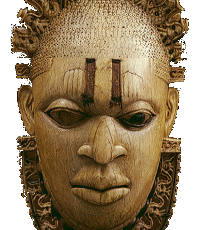The origin of writing
In order to learn about the past we need to find primary sources that can tell us about it. Many of these are texts. In the case of Africa, however, there are relatively few texts available from the time before colonization. Instead historians are forced to rely on archaeological evidence or on oral traditions. The lack of writing systems has been presented as evidence of how “primitive” people in Africa are. Yet, as so often, it is all a matter of politics. Systems of writing first developed in agricultural societies with powerful states. In fact, writing was independently invented in three separate locations – Mesoamerica, China and Mesopotamia. [Read more: “Cracking the Maya code”] The Mesopotamian case is the best documented. Here writing, known as the cuneiform script, developed about 3,200 BCE.
The state needs writing in order to keep track of tax revenue, in order to communicate with its officials and to lay down the law. Besides, kings like their achievements to be remembered – how much land they have conquered and how many enemies they have slewed. From this perspective, writing is a means for the state to exercise power. People are subject to writing much as they are subject to other coercive institutions. It is consequently not surprising to find written records in parts of Africa where there have been powerful, agriculturally-based, states – in Egypt and Ethiopia. The Malian empire did not have writing, but they came close – they had official “recorders of speech,” djeli, charged with memorizing laws and the deeds of the king.
For people who do not live in agricultural societies, and who are not subject to states, oral traditions often serve better. After all, what we need to know in order to live successful lives is above all what people like ourselves have done who have found themselves in situations similar to our own. This information does not have to be written down. Ordinary people do not need a written history as much as they need myths. Myths are taught by the elders and kept alive by the community itself. To live subject to a myth is to live subject to a shared memory of which each member is the custodian.

